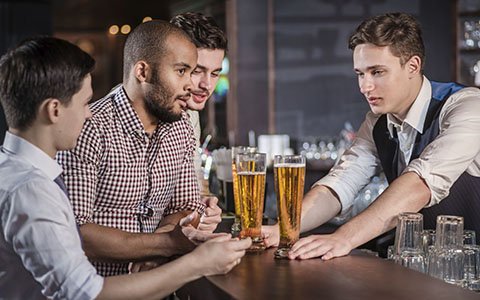Pub extended trading hours: Effects on drunkenness and alcohol-related harm
NDRI: Professor Tanya Chikritzhs, Dr Wenbin Liang, William Gilmore
Associate Professor Peter Miller, Deakin University
Professor Kypros Kypri, University of Newcastle
Professor Kathryn Graham, Centre for Addiction and Mental Health, Canada
Nicolas Droste, Deakin University
Detective Superintendent Jim Migro, WA Police
The aim of this project is to inform and encourage evidence-based liquor licensing decisions in relation to extended late-night trading hours for licensed premises in Western Australia. At present, decisions in relation to trading hour extensions for licensed premises are made on an ad hoc basis, with inconsistent reference to research evidence. It is often claimed that currently available international research is either unrelated to the Perth context or is based on old, irrelevant data. Compounding matters, there has to date been little independent scientific research which has directly investigated whether late night trading hour extensions for pubs have an effect on levels of intoxication among patrons. As a result, decision makers must weigh-up arguments for and against that are often based on conjecture and anecdote.
The key objectives of this project are to:
- Investigate levels of alcohol intoxication among patrons of licensed venues in Perth night-time entertainment districts.
- Determine whether levels of intoxication and alcohol-related problem behaviours among patrons of Perth licensed venues change over the course of the night.
- Investigate whether there are differences in relation to situational characteristics (eg crowding, noise, comfort, drink specials), management and staff practices (eg responsible service, handling of intoxicated patrons) and patron behaviours (eg drink preferences, verbal and physical aggression) between late-night extended trading permit (ETP) and non-ETP pubs (hotels/taverns/small bars) and whether these characteristics vary over the course of the night.
- Determine whether drinking at pubs with night-time extended closing hours (ie ETP) influences:
- level of intoxication among patrons at various times throughout the night;
- the extent to which patrons 'pace' their drinking throughout the night;
- the level of pre-drinking activity among patrons (time started and amount consumed); and
- the likelihood of being a heavy or dependent drinker (based on drinking in the past 12 months).
An evidence-based approach to decision making in relation to trading hours that is underpinned by reliable, timely and independent research evidence will ultimately reduce the harms associated with alcohol sales and reduce the burden of injury and disease borne by health and emergency workers, police and communities.











